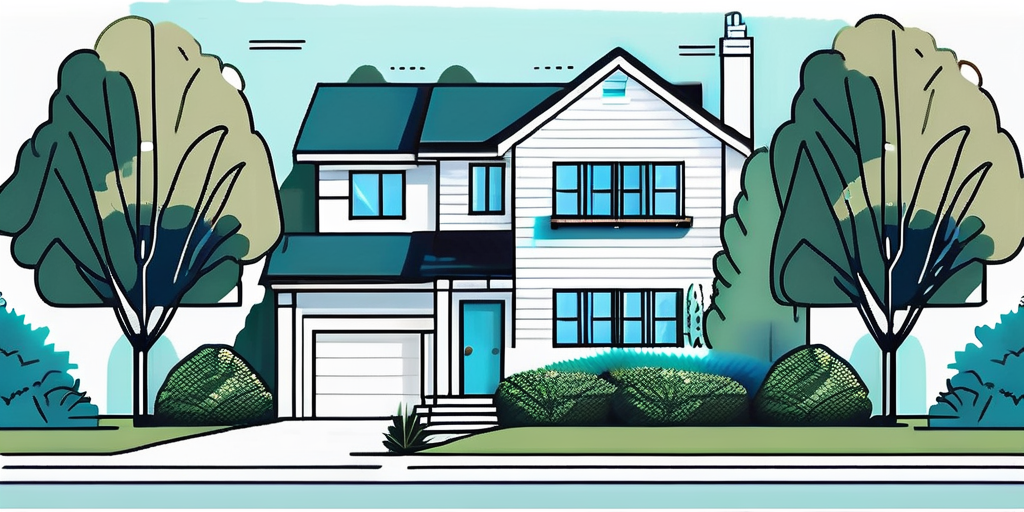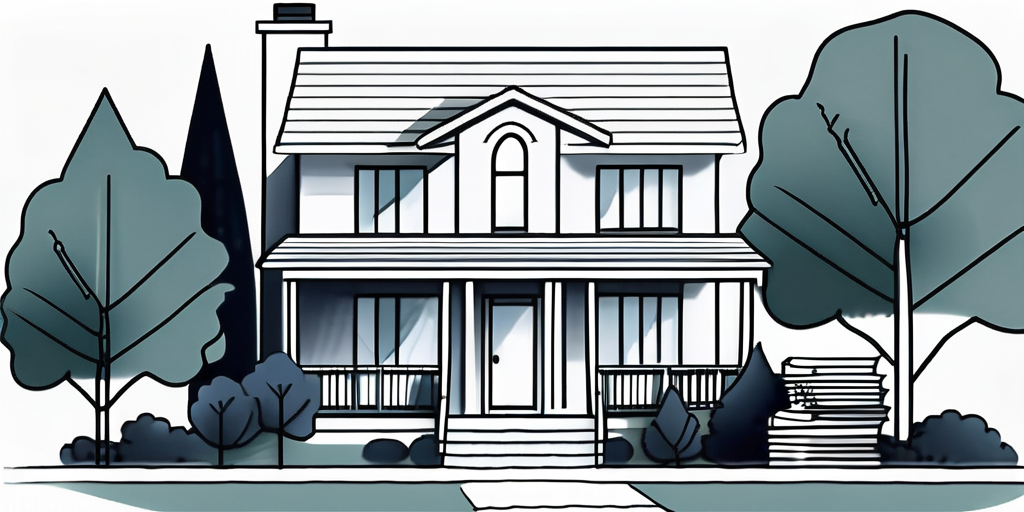How to Sell Your Home Without a Realtor: A Step-by-Step Guide
In today's real estate market, many homeowners are choosing to sell their homes without the assistance of a realtor. This approach can significantly reduce the cost of selling, allowing you to keep more money in your pocket. However, it requires an understanding of the selling process, the legalities involved, and effective marketing strategies.
Understanding the Home Selling Process
The first step in selling your home is understanding the entire process. Selling a home without a realtor can seem daunting, but breaking it down into manageable steps can simplify it. A typical home selling process includes pricing your home, preparing it for sale, marketing it effectively, conducting viewings, and finally closing the sale.

For instance, imagine a homeowner, Sarah, who decided to sell her home in a competitive neighborhood. By understanding the local market dynamics and researching similar homes that had recently sold, she was able to price her property competitively. This helped her attract potential buyers and generate interest quickly.
The Importance of Pricing Your Home Correctly
Pricing your home accurately is crucial. Pricing it too high may deter potential buyers, while pricing it too low could result in a loss for you. Conducting comparative market analysis (CMA) can help you assess the going rates for similar properties. This analysis includes looking at recent sales, current listings, and the unique attributes of your home.
Take, for example, another seller, John, who initially priced his home above market value due to emotional attachment. After a month on the market with minimal interest, he adjusted the price based on market feedback. This change led to multiple offers and he ultimately sold for a price close to his original asking amount, showing that perception and timing are vital.
Preparing Your Home for Sale
Preparing your home for sale involves making it appealing to buyers. This often includes decluttering, deep cleaning, and staging your home to highlight its best features. Consider hiring a professional stager or taking inspiration from online resources to showcase the potential of your property.
For example, another homeowner, Emily, took the time to repaint her walls, fix minor repairs, and enhance her landscaping before listing her home. As a result, she received higher offers than anticipated, proving the impact of a well-prepared home.
Legal Aspects of Selling a Home Without a Realtor
Understanding the legal aspects is paramount when selling a home independently. You need to be aware of the necessary documents and property laws that govern real estate transactions.

Necessary Legal Documents
You'll need various legal documents, including the title deed, property disclosure statements, and the purchase agreement. A title deed proves your ownership, while a property disclosure statement informs potential buyers of any known issues with the property.
Failure to disclose issues can lead to legal disputes post-sale, as demonstrated in a situation where a seller, Tom, neglected to mention a past flooding issue. The buyer discovered this after purchasing the house, leading to a lawsuit that could have been avoided with transparency.
Understanding Property Laws
Every state has different property laws that can significantly affect your sale. Familiarizing yourself with these laws is crucial to avoid any legal pitfalls. For instance, some regions may require a property inspection or have specific zoning laws that could impact a sale.
A notable case involved a seller, Karen, who wasn't aware of local zoning regulations affecting her property's land use. By consulting with a real estate attorney, she ensured compliance, streamlining her sale process without legal complications.
Marketing Your Home Effectively
Marketing your home is essential to attract potential buyers. A well-thought-out marketing strategy encompasses both online and offline methods to reach a broad audience.
Online Marketing Strategies
In today’s digital age, online marketing is vital. Create compelling listings on various real estate websites, including professional photos and detailed property descriptions. Utilizing social media platforms to share your listing can significantly increase visibility.
For instance, a seller named Adam took advantage of social media by creating a virtual tour of his home. He shared it on Facebook and Instagram, resulting in numerous inquiries and eventually selling his home above asking price thanks to the online buzz.
Offline Marketing Techniques
While online strategies are important, don’t overlook offline marketing techniques. Consider using flyers, open house events, and local newspaper ads to attract buyers. One effective strategy is hosting an open house; this not only allows potential buyers to experience the home firsthand but also creates a sense of urgency.
For example, Lisa hosted an open house one weekend and collaborated with local real estate agents to spread the word. The turnout was impressive, and she sold her home within a week of the event, underscoring the impact of community engagement in marketing efforts.
Conducting Home Viewings and Negotiations
Once you've attracted potential buyers, the next step is to conduct home viewings and negotiate offers effectively. This part of the process can greatly influence the sale price.

How to Conduct a Successful Home Viewing
When conducting viewings, ensure your home is clean and clutter-free. Be prepared to answer questions about the property and neighborhood. Some sellers find it helpful to create informational packets that highlight essential features and upgrades made to the home.
Ben, a seller, provided potential buyers with a home details booklet during viewings, including receipts of upgrades. This thoughtful gesture instilled confidence in buyers, leading to a quicker offer on his property.
Negotiating the Sale Price Effectively
Negotiation can be daunting, but it is essential in securing the best price for your home. Be prepared to counteroffer and understand your bottom line. Having a predetermined minimum price will help you in negotiations without getting emotional about the process.
For instance, when Rachel received an initial offer below her expectations, she kindly countered, pointing out recent home improvements that justified her asking price. Her negotiation skills paid off, and they eventually settled on a price that satisfied both parties.
Closing the Sale on Your Own
Finally, closing the sale requires attention to detail. This step involves finalizing all necessary documents and ensuring that financial transactions occur smoothly.
Finalizing the Sale Documents
Prior to closing, ensure that all documents are in order. This includes checking that the purchase agreement reflects any negotiated terms. It may be beneficial to work with a real estate attorney to ensure all paperwork is legally binding.
A seller named Mark found it advantageous to have professional help at this stage. He avoided errors in documentation that could have caused a delay in closing, allowing for a smooth transaction on closing day.
Handling the Financial Transactions
Managing financial transactions wisely safeguards both you and the buyer. Use a secure method to transfer the down payment and ensure the title transfer process is followed correctly.
Lastly, consider working with an escrow company to streamline the financial side of the transaction. This arrangement was pivotal for Jenny, who sold her home in a rapidly changing market, guaranteeing all parties met their obligations and simplifying the process.
By following this guide, you can navigate the home selling process with confidence and expertise, ultimately leading to a successful sale without the need for a realtor.
Ready to Maximize Your Sale?
Embarking on the FSBO journey can be rewarding, and SmartSellersMatch.com is here to ensure your success. Our platform provides the essential information and documents you need to sell your home without a realtor, smoothly and profitably. Kickstart your sale with an edge by getting an instant FSBO Market Score, a data-driven insight that helps you understand your starting point and what you can enhance to increase your home's value. Get your FSBO Market Score now and take the first step towards keeping more money from your final sale.





